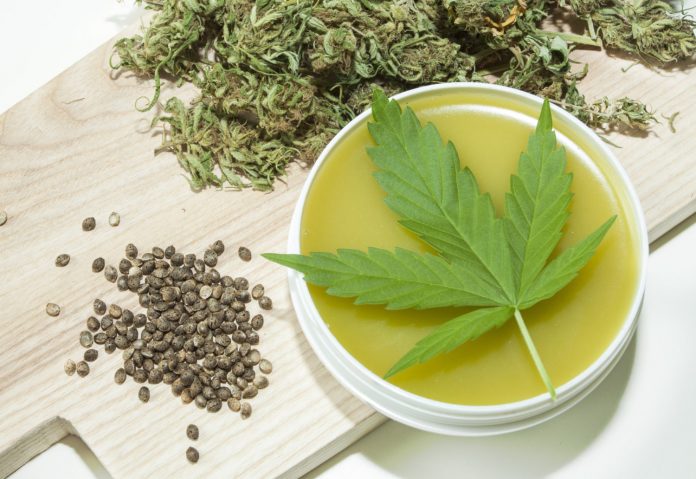HHC (hexahydrocannabinol) is one of the newest cannabinoids to emerge in the cannabis industry and presents us with new insights into its therapeutic and recreational potential. Understanding HHC and its implications for community health becomes crucial as research continues. This article covers its chemical properties, legal status, potential health benefits, and societal ramifications. In light of evolving legal frameworks and consumer interests for cannabis as a plant, engaging HHC can offer insights into future trends of usage or regulation for cannabis in general.
What are HHC services?
HHC, or Hydrolysed THC, is the main psychoactive compound found in cannabis and undergoes a process similar to that used to convert vegetable oil to margarine for this transformation. Hydrogenation alters both its molecular structure and its effects on the body. By adding hydrogen molecules, the shelf life may even be extended while keeping potency.
Comparison to THC and CBD
HHC differs significantly from THC by offering a milder high and creating more manageable effects. It often draws comparisons to non-psychoactive cannabidiol (CBD), however, HHC offers its special place as a middle ground that features some psychoactive properties without overwhelming senses or producing strong feelings of euphoria associated with traditional THC products. These qualities make HHC an appealing option for individuals seeking mild psychoactive effects alongside therapeutic benefits like stress relief or mood enhancement.
Current Legislation
The legal landscape surrounding HHC can vary widely by region. Within the US, its legality resides somewhere between federally legal hemp-derived THC and psychoactive state laws differing substantially depending on state legislation that specifically ban synthetic cannabinoids. Consumers and retailers should exercise extreme care when purchasing synthetic cannabinoids due to this legal ambiguity and remain informed regarding local regulations as best they can to navigate ever-evolving legal thresholds responsibly.
Accessibility and Market Trends
- Online Sales: HHC products can often be found through various online sales platforms, providing relatively higher accessibility compared to strictly-controlled compounds like delta-9 THC.
- Retail Presence: Where HHC is legal, HHC products can be found at dispensaries and some health stores. Its availability varies significantly more than CBD’s, impacting market trends with increasing consumer curiosity about its benefits and experiences associated with HHC, prompting an expansion in market presence and variety of available products.
Health Implications
Potential Benefits
Research on HHC is in its infancy. However, preliminary studies and anecdotal reports point toward several possible health benefits:
- Pain Reliever: HHC can also offer some relief to chronic pain sufferers and may provide another avenue of therapy to manage symptoms effectively.
- Anxiety Reduction: According to users, HHC strains can help relieve anxiety without producing overwhelming effects, such as those seen with stronger THC varieties. As such, these make HHC a suitable option for individuals looking for relief while keeping a clear headspace. This makes HHC an especially suitable option for daytime or novice cannabis use.
Risks and Considerations
Although HHC provides many advantages, its use cannot come without risks. Changes to its chemical structure could pose unknown health concerns, and there hasn’t been enough testing of the long-term effects of use; users should proceed with caution with dosage or frequency use of any HHC product available on the market due to the lack of regulatory oversight, which allows variations in quality or potency across their range of use.
Impact on Community Health
Social Implications
New cannabis compounds like HHC may have profound social ramifications. On the one hand, such compounds offer new therapeutic opportunities and reduce the stigma around cannabis use. Yet, at the same time, it can pose regulatory hurdles and cause misuse among younger populations – necessitating an open discussion on both potential benefits and responsible usage from all parties involved in society.
Public Health Considerations
- Education and Awareness: Public education on the effects and proper use of HHC products is of critical importance.
- Regulation and Control: Proper regulation can mitigate potential health risks while optimizing HHC benefits in communities worldwide. By creating robust regulatory frameworks to oversee HHC production and distribution processes, effective regulation can assist in monitoring production/distribution practices. It can also ensure products are safe, labeled accurately, and dispensed responsibly, as well as educate people about safe cannabinoid use, thereby helping prevent misuse and health risks while informing individuals on its safe/effective usage.
For those eager to dive deeper into the specifics of HHC and start their journey into this intriguing cannabinoid, get started now.
Conclusion
As the cannabis industry evolves, compounds like HHC represent both new opportunities and challenges. Recognizing HHC’s properties, legal status, health implications, and therapeutic potential is crucial to consumers, healthcare providers, and legislators. Research should balance therapeutic potential with regulation/education efforts







